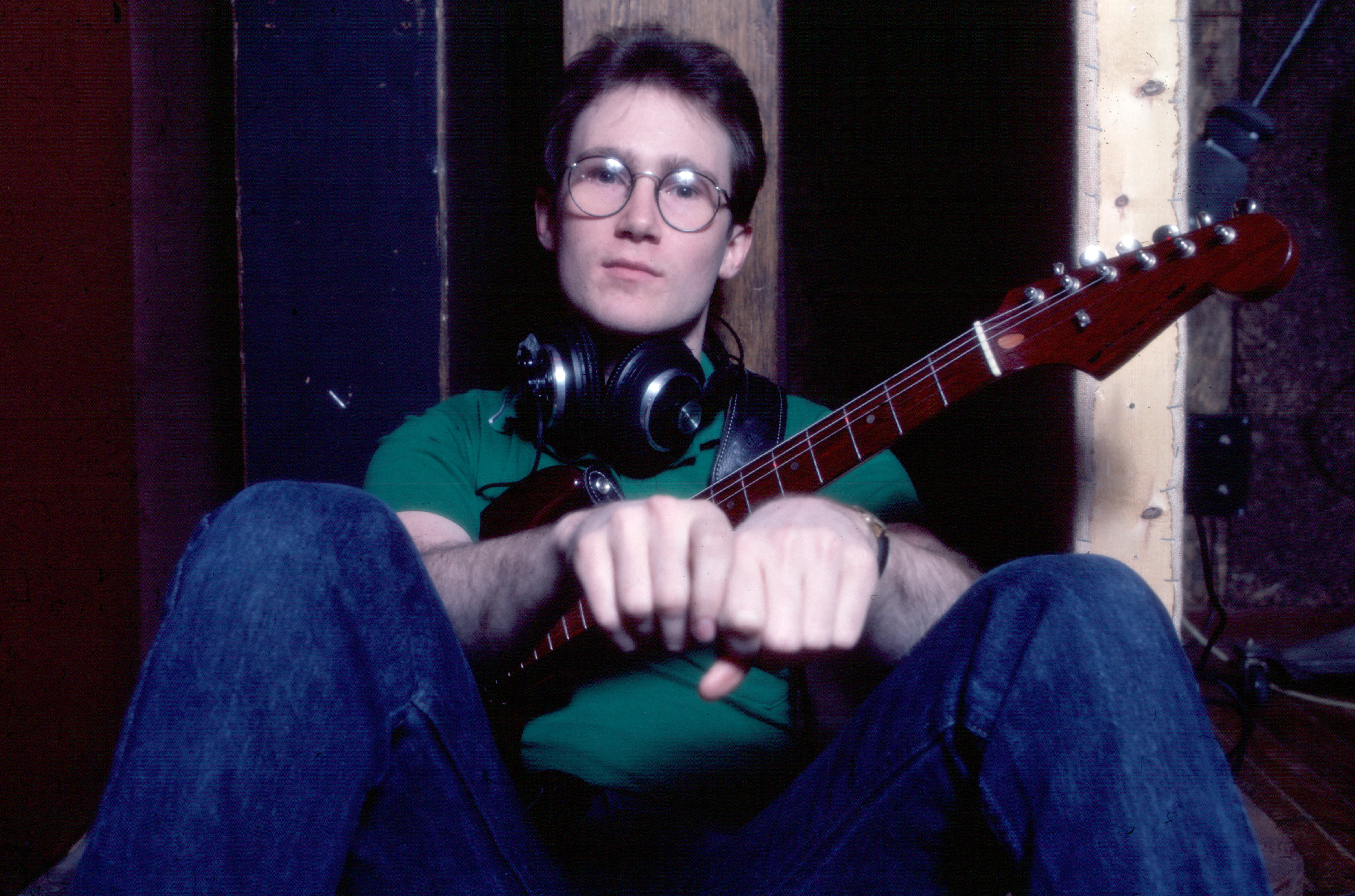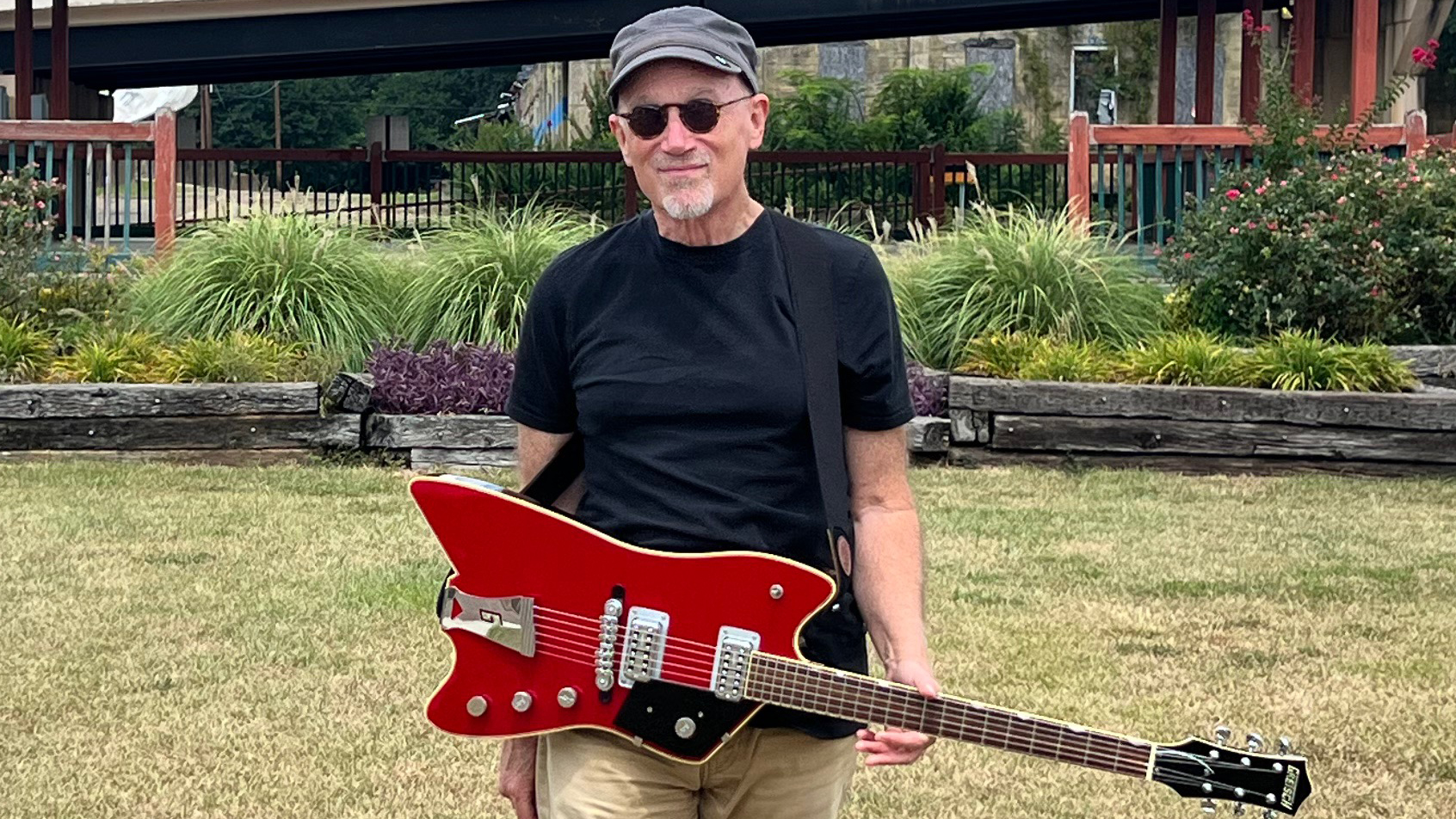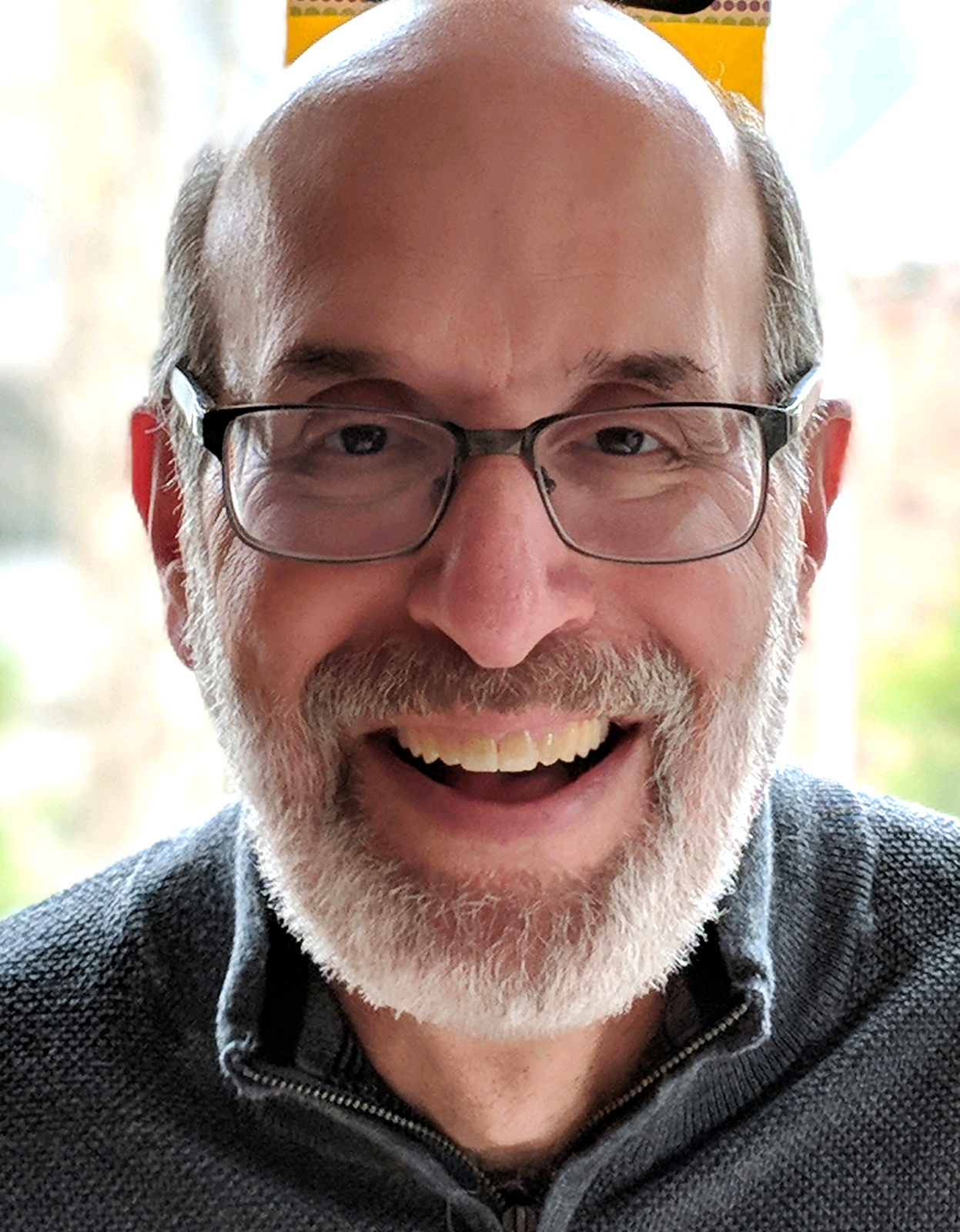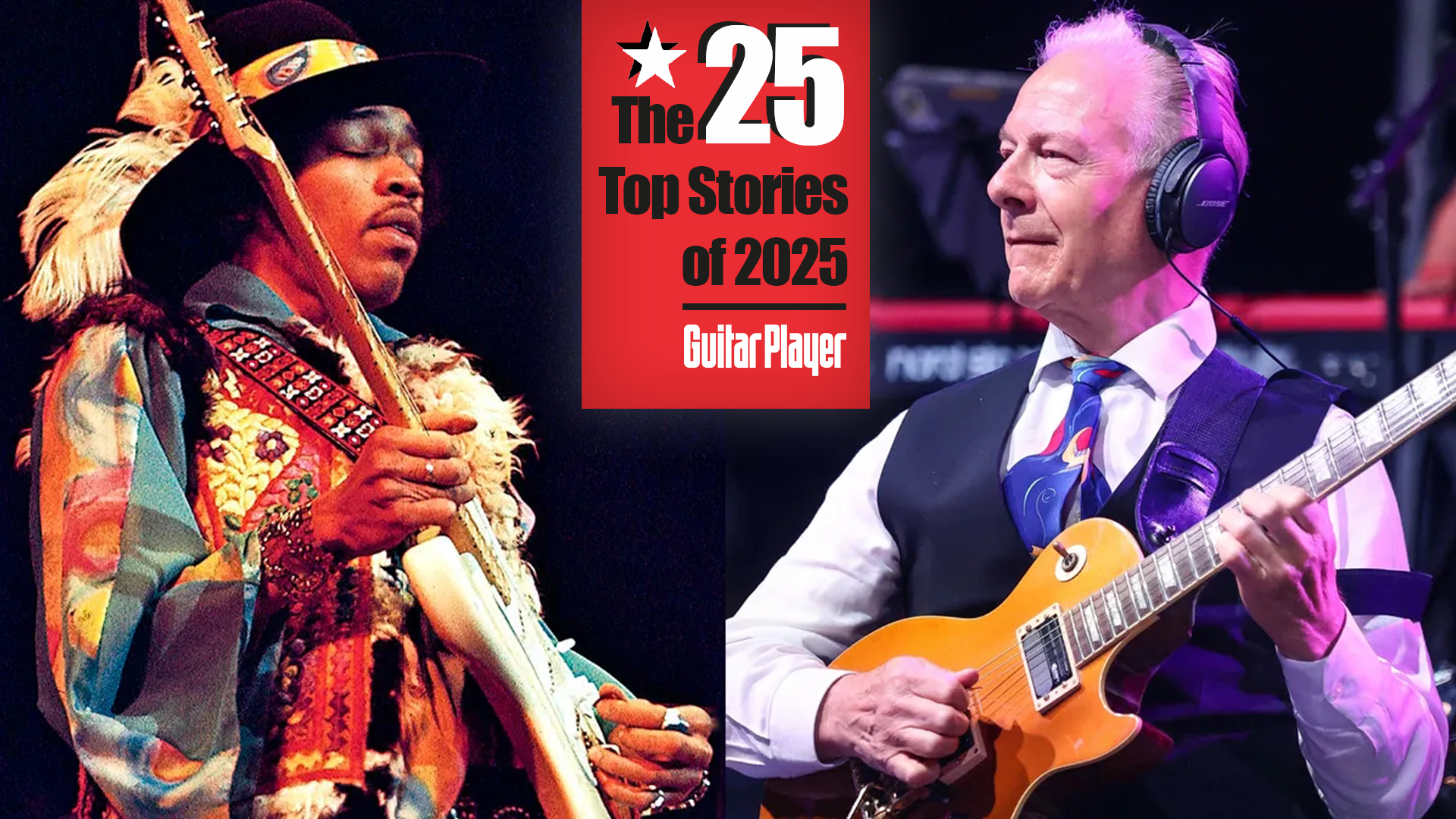“They said, 'You've got to do it,' but I'm so glad they did. It became my biggest song.” The guitarist behind a power-pop gem almost let his hit single pass him by
Marshall Crenshaw tells the story behind “Someday, Someway,” “Something’s Gonna Happen” and other treasures from his career

While he's still happy to play live — with his own band and as part of the present-day Smithereens — Marshall Crenshaw admits that he's not as active in creating new music these days.
"I'm not really doing any writing and recording right at this minute," notes Crenshaw, whose focus now is finishing a documentary about Tom Wilson, the famed record producer behind Bob Dylan, Simon & Garfunkel and many others. "Maybe I will again. I would never say never. I've made a lot of records and I have a catalog I think is cool, so I'm happy to deal with that now."
It is indeed a rich body of work: 10 studio albums since 1982, and more than a half-dozen EPs. They've spawned some hits ("Someday Someway," "Cynical Girl," “Whenever You’re on My Mind," "Better Back Off") and enjoyed a great deal of critical favor, while Crenshaw's songs have also been covered by Bette Midler, Robert Gordon, Ronnie Spector and others. He also co-wrote the Gin Blossoms 1995 hit "'Til I Hear it From You" from the Empire Records soundtrack.
The Detroit native's extensive resume includes a brief stint playing bass guitar for Bob Dylan, membership in the DKT/MC5 spin-off band, writing a book (Hollywood Rock: A Guide to Rock 'n' Roll in the Movies) and hosting a New York radio show (The Bottomless Pit). His title track for the 2007 film Walk Hard, meanwhile, was nominated for Golden Globe and Grammy awards.
Raised in suburban Detroit, Crenshaw credits his father with his interests in music and in guitar. "He used to listen to [Nashville clear-channel] WLAC," Crenshaw remembers. "He had a taste for that music — R&B, rockabilly, blues. That was the music we heard around the house. And my dad had a guitar and played it. I could see he was having fun, so it just appealed to me immediately. I was 'musically inclined,' as they say, so it seemed like a good road to take through life."

That — with help from the Beatles — led Crenshaw to teenage bands and beyond. And even though he "threw my parents curve ball after curve ball," his father continued to encourage his musical interests. "He was, like, my biggest fan when I started playing guitar and singing. He would sit there and listen to me as long as I wanted to keep going." Crenshaw's path took him to Beatlemania — playing John Lennon in the Broadway, West Coast and touring companies — for two years before he settled back in New York during 1980 to pursue his own music.
It's a deep well he draws from every time he hits the stage for one of his 40+ Years in Showbiz concerts, but he points to these five as keys to his career.
All the latest guitar news, interviews, lessons, reviews, deals and more, direct to your inbox!
"Something's Gonna Happen" — single (1981)
“That's my real first record. I still think it's a great rock and roll track. I copied the very opening it from ‘C'mon Everybody’ by Eddie Cochran, with the tambourine sizzle and the bass slide, just that split second of ‘C’mon Everybody,' with the acoustic guitar driving the whole thing.
“I had an Ibanez acoustic I bought at a sewing machine store in Rock Springs, Wyoming. Then I had a Fender mandolin; there's a picture of it on the back of my first album. I doubled the acoustic a little bit with that and mixed it in. On ‘C'mon Everybody' or 'Summertime Blues,’ you can hear an octave thing happening from some place, and we got that by putting the Fender mandolin with the acoustic. An Epiphone Coronet was the electric guitar, with a single-coil pickup, a P90.
“I was having a tough time getting a sound for the guitar solo from the amps I brought. That was always a struggle for me in the beginning, until Field Day. One of the engineers said, ‘Why don't you try that amp in the corner. It's Chris Spedding's amp.’ It was a little silver-faced Princeton. So I tried it and it worked great.
“The response to it was amazing. That's the song that really made everything happen.”
— Marshall Crenshaw
“We did that song with Alan Betrock, and it was a really gratifying deal. And then the response to it was amazing. It got on New York radio, which was really crazy, because you know how tight radio was back then; if you were on an indie label like I was [Betrock’s New York City–based Shake Records], and you just had a single out, not an album, you didn't have a chance.
“But we got on there 'cause of Robert Gordon — he did a cover of my song ‘Someday, Someway’ back before I’d released my own version of out. A local DJ named Meg Griffin really loved Robert and when ‘Someday, Someway' came out she jumped on it and it became a hit in New York. Then when my record came along she said ‘yes’ to that, too. The whole thing — that whole time period — is just really magical to me. That's the song that really made everything happen.”
“Someday, Someway" — Marshall Crenshaw (1982)
“I quit Beatlemania in February 1980 and got an offer right away from another Beatle band. My wife said, ‘Forget it, you're not doing it,' 'cause I was already doing my own stuff. I was really at it, like a busy beaver, lots of songs and lots of recordings at home. I was living in Westchester and I'd take the train into New York with a sack of cassettes and a list of addresses I had from the owner of a rehearsal studio my brother worked for. I immediately started getting callbacks, and I got a message on my answering machine from Robert Gordon saying he'd heard some songs and he wanted to do ‘Someday, Someway.’
“When we went in to do our first album, I didn't really have any notion of doing ‘Someday, Someway,’ 'cause I thought, Well, everybody already knows Robert Gordon's version. Why should I do it? But Warner Brothers said, 'Well, y'know, you've got to do it,' so they insisted I do the song. Otherwise I wouldn't have done it, but I'm so glad they did. They were right and I was wrong. And it became my biggest song.
“I also love our version. Robert's version is great but our version is really personal, and I really love the sonic picture aspect of it. It's got the white noise from the Phil Spector sleigh bells, and I used a 12th-fret harmonic on the E string of the guitar as a kind of percussion instrument. It's got an echo chamber on it, too, and there are a couple of trance-inducing elements, a drone and white noise.
"Back in the day I really wanted us to have a lot of Top 40 songs. I wound up with only one, and that's ‘Someday Someway.’ "
— Marshall Crenshaw
“And my brother on the drums, he made the whole thing work in the moment 'cause I was really, really fussy about getting the groove right. The first layer of all that was a live rhythm section, drums and bass, then overdub everything else. That was the strategy. We pounded away for a big part of one day, trying to get the backing track, and I didn’t think we got it. It didn't have the right nuance to it.
"So we came back the next day after we did 35 takes of it, and the assistant engineer had circled one of the takes and said, ‘Listen to this one.’ He put it up and I listened for a couple of seconds and I said, ‘Take out everything but the drums,' and I just sat there and listened to the drums and I'm like, ‘He did it. It's perfect. It takes its time, and it swings.’ Robert just did a beautiful job on that track.
“I did everything else myself after that, except for the background vocals, which is mostly [bassist] Chris Donato. I wound up playing the bass on it; I wanted it to be like [Wrecking Crew bassist] Joe Osborn 'cause he played with a pick and just had a really cool sound I loved. He was sort of my role model as a bass player, so that was as close as I could get to him.
“It's special to me 'cause back in the day I really wanted us to have a lot of Top 40 songs. I wound up with only one, and that's ‘Someday Someway.’ "
"Til I Hear It From You" — Empire Records Soundtrack (1995)
“I'm really, of course, happy about the handful of times when I've been able to pick the pocket of mass culture in a big way, and this instance really stands out for me with the Gin Blossoms 'cause it started out with me hearing just completely out of left field from somebody I didn't know. It was Jesse Valenzuela from the band. He asked me to write a song, and it turned out they already knew it was gonna be in a movie soundtrack.
“We were both at South By Southwest in a hotel room. He had the beginning of it and I helped him finish it. He had the title and the chord changes, and I kinda took it from there. We got the piece of music completely together, with the melodies and everything, then all you had to do from there was write the words and the singer, Robin Wilson did that. I didn't meet [Wilson] 'til after I'd already heard the record on the radio, and now we both sing for the Smithereens, so that's kind of funny. But it was a real three-way collaboration; part of it was in person and then part of it was more like people do things now, through email or remotely or whatever. This was the 90s so there was really no Internet like there is today.
“So we did it and it came out. Everybody was very pleased with what happened after that. I never got sick of hearing it on the radio and seeing it on VH1 and MTV. That lasted about six months, really one of the few times something like that's happened in my life.”
"Gasoline Baby" — Jaggedland (2009)
“This is one of my own favorites of my songs. There's lots of noise, lots of chaos in the music, and that's a concept that got put in my head way back when by the MC5 and Wayne Kramer. They had those elements in their music, and it just stuck in my mind, just the notion of having there be chaos and madness and noise in the music. It surfaces from time to time for me, sometimes on the surface or below the surface. To me it reflects real life if those elements are in the music.
“And the other thing I love about it is I made it up in about five minutes one day, when I was driving, just thinking about what seems to me to be the absurdity of constantly buying and burning gasoline. Right? It's absurd to me and has been for a long time. I've always had this funny feeling about the whole thing.
“It's just a fun track. When I finished doing it I just thought, Well, maybe now I've finally done something as good as 'Surfin' Bird' by the Trashmen — just one of those stupid rock and roll records. Finally I'd done one of those.”
"Will of the Wind" — #447 (2021)
“I wrote it and recorded it during lockdown with a guy named Gregg Turner. Gregg was in a band called the Angry Samoans a number of years ago, and we had a mutual friend. I started it myself, and he helped me finish it. I got inspired by pictures in The Guardian of the wildfires in Australia; the sky was yellow and brown and I saw that picture and I thought, Well there's a song. There could be a song there.
“And since it was lockdown I couldn’t bring in any other musicians, so I just did the whole thing myself, which I've always liked doing anyway. I can write a song and record it, still, if I want to, so I was happy to realize that.
“Again, it's got, like, the chaos and noise in the music. There's a lot of guitars and a little bit of piano, but you can't really hear it. There's a lot of fuzz guitar on this one, and I don't think I've ever used a fuzz box before.”
Gary Graff is an award-winning Detroit-based music journalist and author who writes for a variety of print, online and broadcast outlets. He has written and collaborated on books about Alice Cooper, Neil Young, Bob Seger, Bruce Springsteen and Rock 'n' Roll Myths. He's also the founding editor of the award-winning MusicHound Essential Album Guide series and of the new 501 Essential Albums series. Graff is also a co-founder and co-producer of the annual Detroit Music Awards.





